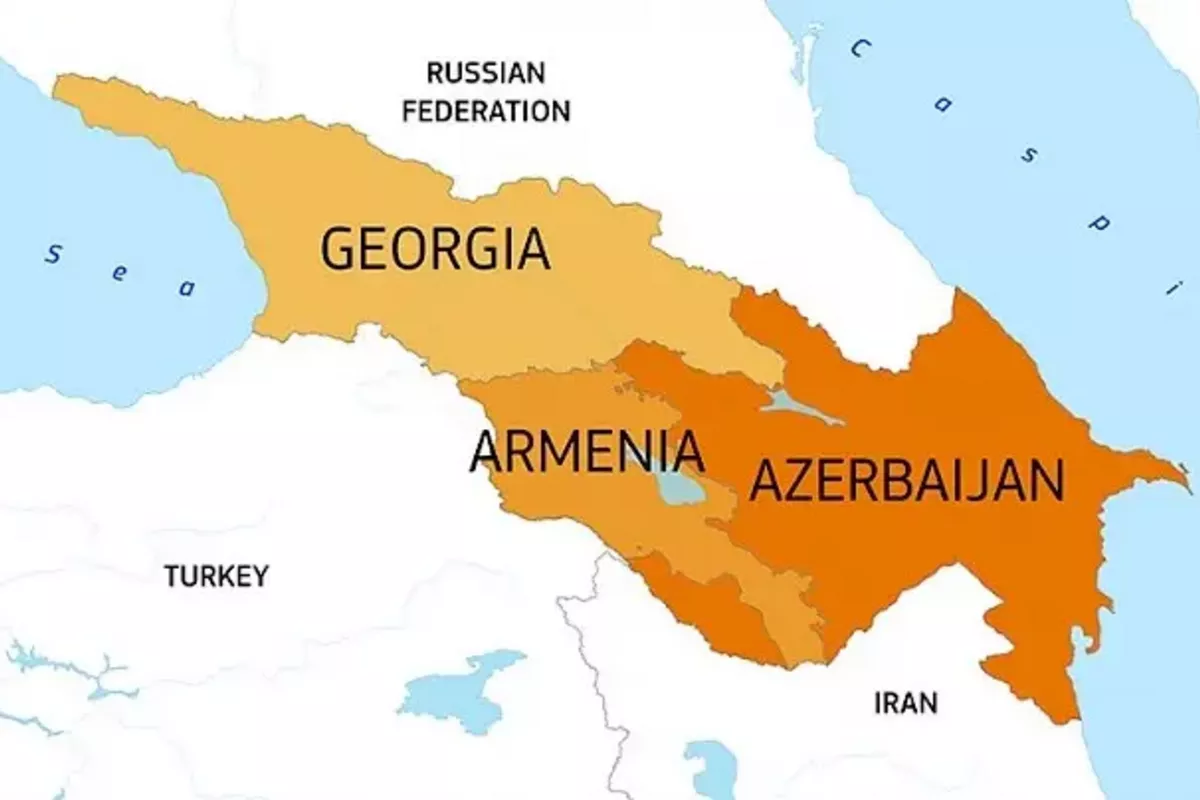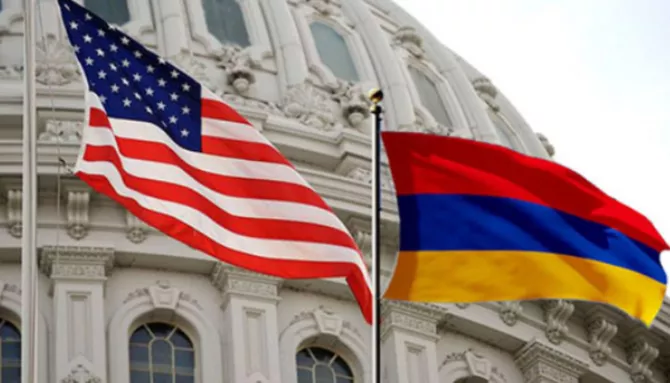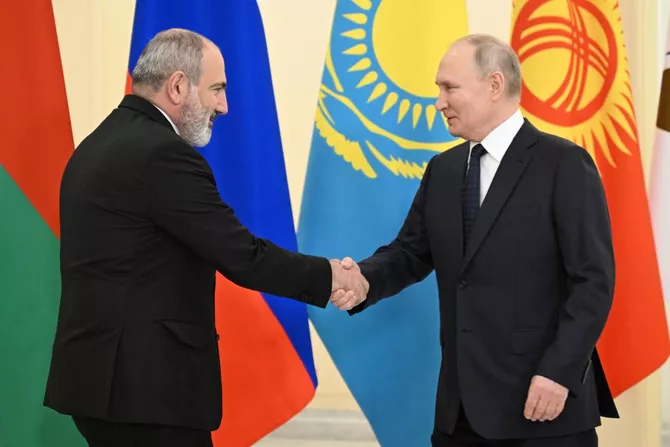
photo: Aircenter.az
On August 8 in Washington, under the auspices of the US, a historic agreement was signed between Azerbaijan and Armenia, marking a new chapter in the relations between the two countries. For the first time in over a century of conflict, the parties agreed to cease hostilities, laying the groundwork for a potential new geopolitical framework in the South Caucasus. Experts note that the region is entering a period of radical change, where traditional actors risk losing influence, while emerging powers aim to assert leadership through soft power strategies.
The Caspian Post discusses the significance of this declaration, its implications for national security, and the prospects for future peaceful coexistence with Zafar Najafov, a PhD in National Security and Military Sciences and a lecturer at the Azerbaijani National Defense University.

- On August 8, a historic document was signed in Washington between Azerbaijan and Armenia. How do you assess its significance for the future of the South Caucasus?
- The signing of the Joint Declaration marks a turning point in the region’s history. For the first time in over thirty years of conflict, both sides committed to normalizing relations, paving the way for the establishment of diplomatic ties and the resolution of border demarcation and delimitation issues. This represents not only an end to hostilities but also the emergence of a new geopolitical framework in the South Caucasus, where traditional actors are gradually losing influence, and new forces will shape the rules based on ‘soft power.’ For Azerbaijan, this is an opportunity to finally curb Armenia’s revanchist ambitions and secure its historically justified positions.
- What specific benefits does Azerbaijan gain from the signing of this declaration?
- Azerbaijan gains on several strategic fronts. First, the declaration legally and officially removes Armenia’s territorial claims on Azerbaijan, particularly concerning the Karabakh economic zone, eliminating any potential disputes in the future. Second, the repeal of the US 907th amendment effectively removes double standards and opens the door for full-fledged defense cooperation with Washington. Third, the opening of the Zangezur Corridor under US oversight, rather than Russian control, creates a new model for regional logistics and strengthens Azerbaijan’s position in transcontinental projects. Additionally, the activities of the OSCE Minsk Group will be definitively concluded, removing formal obstacles to a direct peace process.
- How will these changes affect the balance of power in the region and Azerbaijan’s foreign policy position?
- The influence of Russia and Iran in the region will inevitably weaken, while the roles of the US, NATO, and Türkiye are set to strengthen. As a US ally and NATO partner, Türkiye will gain additional opportunities to consolidate its regional presence. In a broader context, this creates conditions for transforming the Middle Corridor into a strategic logistical artery across Eurasia, positively impacting the integration of the Turkic world. In this scenario, Azerbaijan not only will elevate its bilateral relations with the US to the level of a strategic partnership but also reinforce its position as a key regional actor. At the same time, it is evident that these changes will affect the Russia-Azerbaijan alliance, which will need to adapt to the new reality.

Photo: CivilNet
- In your view, is Armenia ready to let go of the myths of the past and seize this historic opportunity to transform into an independent, economically strong, and strategically positioned transit state, grounded in equal and cooperative relations with its neighbors and the US?
- For Armenia and the global Armenian community, new prospects are emerging that could reshape not only the country’s internal politics but also its entire foreign policy trajectory. By moving away from utopian and destructive ideas such as ‘Miatsum’ or the notion of a ‘Greater Armenia,’ the country has the opportunity to become a genuinely independent and modern state, capable of pursuing pragmatic policies based on the real interests of its people rather than historical myths. A key outcome could be the normalization of relations with Azerbaijan and Türkiye, which would restore dialogue and enable cooperation under a ‘zero problems’ approach. This would also open Armenia’s domestic market to Turkish entrepreneurs, generating new jobs, investments, and opportunities for economic growth. Concurrently, Armenia’s relations with the US could gain momentum, becoming more constructive and regionally development-oriented.
However, such rapprochement is likely to raise concerns in Iran, where the current regime may perceive Yerevan’s steps as a shift away from the traditional regional order. At the same time, US support would serve as a critical resource for Armenia in gradually reducing its overreliance on Russia. A priority in this regard could be the eventual withdrawal of the Russian military base from Armenian territory, a symbolic step toward genuine sovereignty. Thanks to its strategic geopolitical location, Armenia has the potential to become an important transit country situated along key corridors linking the South Caucasus with Asia and Europe. This would open new opportunities in transportation and logistics and position Armenia as a significant regional player. Finally, strengthening ties with the West and diminishing Moscow’s influence would reduce the likelihood of pro-Russian forces returning to power. In this way, Armenia gains a tangible chance for modernization, political independence, and economic revival.
- How do you assess the possibility that the US, by implementing these strategic measures, not only could strengthen its influence in the South Caucasus but also fundamentally reshape the security architecture across the post-Soviet space?
- Since the US is the architect of this declaration, it can be assumed that Washington aims to extract a range of strategic benefits from it. First and foremost, America will seek the swift signing of a peace treaty between Azerbaijan and Armenia, which would solidify its position as a key player in the South Caucasus and gradually displace Russia from the region. At the same time, the US is likely to influence the formation of Iran’s future governance model and intensify the use of “soft power” instruments in regional management. Until Russia and Iran are fully weakened, Türkiye will probably serve as a balancing factor leveraged by Washington. Against this backdrop, a new competition-primarily economic-will unfold in the region between the US and China, leading to the formation of blocs aligned with these powers. Washington is also likely to prevent BRICS from expanding toward the South Caucasus, instead promoting the growth of the “Abraham Accords.” Concurrently, the US will aim to integrate the South Caucasus into its NATO eastward expansion plans and potentially establish a new subregional security framework aligned with its strategic interests. On a broader scale, the US intends to promote the decentralization of Russia within the post-Soviet space, launch a Trans-Caucasian security system, gradually advance toward the Heartland, and gain control over anti-Atlanticist forces.

Photo: Los Angeles Times
- In your view, if Washington succeeds in securing the withdrawal of foreign military bases from the South Caucasus, could it transform the region into a zone of genuine demilitarization and lasting peace, or would resistance from Russia and its attempts to use Armenia make this process prolonged and highly contentious?
- The plan proposed on August 8 carries a number of serious risks. First and foremost, Russia could intensify destructive activities aimed at undermining socio-political stability and influencing a change of power in Armenia. To achieve this, it could leverage various instruments of influence - from its military contingent in Gyumri and the Kocharyan-Sargsyan political duo to the Church, which might act as a kind of “fifth column.” In Azerbaijan, where Moscow’s positions are less entrenched than in Armenia, one can expect increased pressure across economic, informational, and humanitarian domains - essentially a full spectrum of hybrid measures. Already, attacks on strategic facilities beyond its borders have been noted: on the night of August 8, Russia used Shahed drones to strike SOCAR’s oil depot in Ukraine’s Odessa region. Moreover, Russia is likely to attempt to use Armenia against Azerbaijan again, amplifying propaganda around biased and politically motivated issues such as the renaming of toponyms, the destruction of cultural monuments, or the idea of returning Armenians to Karabakh. In a broader context, Moscow may seek to reintroduce the separatism factor into the South Caucasus, with Georgia also potentially drawn into the process, as a reconciliation between Azerbaijan and Armenia could give new momentum to Tbilisi’s Euro-Atlantic integration. Finally, the new geopolitical reality might push Russia toward seeking closer ties with Iran; however, the stability and viability of such a union remain highly uncertain. It is also clear that a country depleted of military resources in Ukraine and facing international isolation is unlikely to defend its regional interests using previous methods. Managing the South Caucasus without its demilitarization will be extremely difficult, which is why Washington, aiming to strengthen its position, may prioritize the removal of foreign military bases from the region.
Share on social media